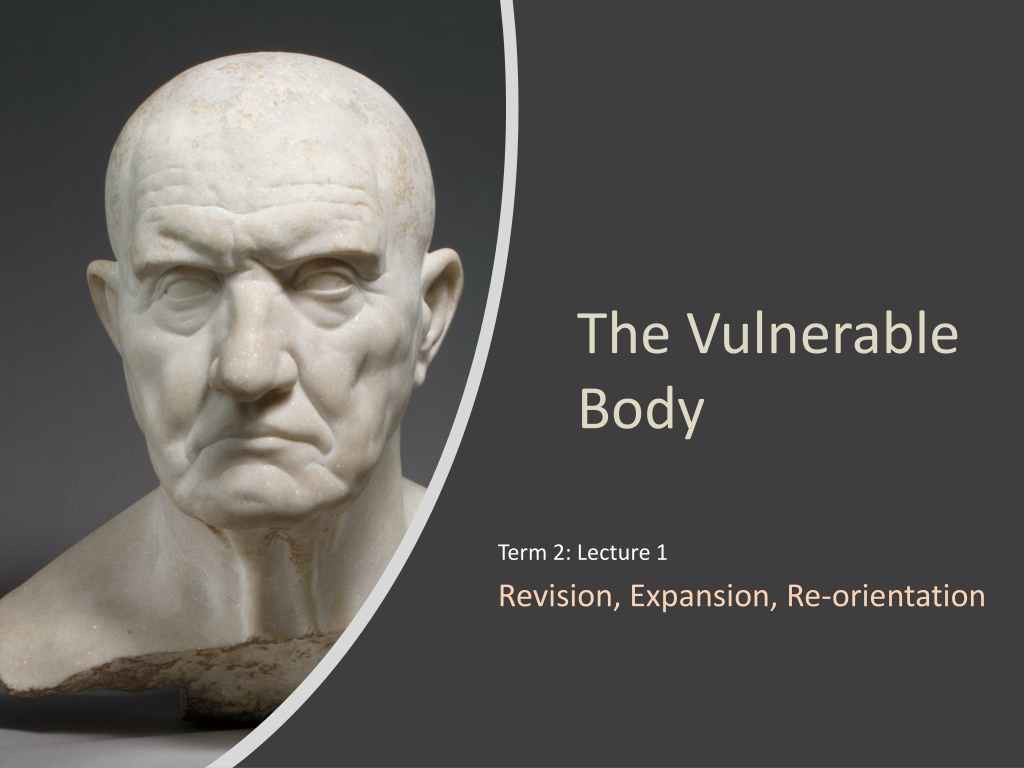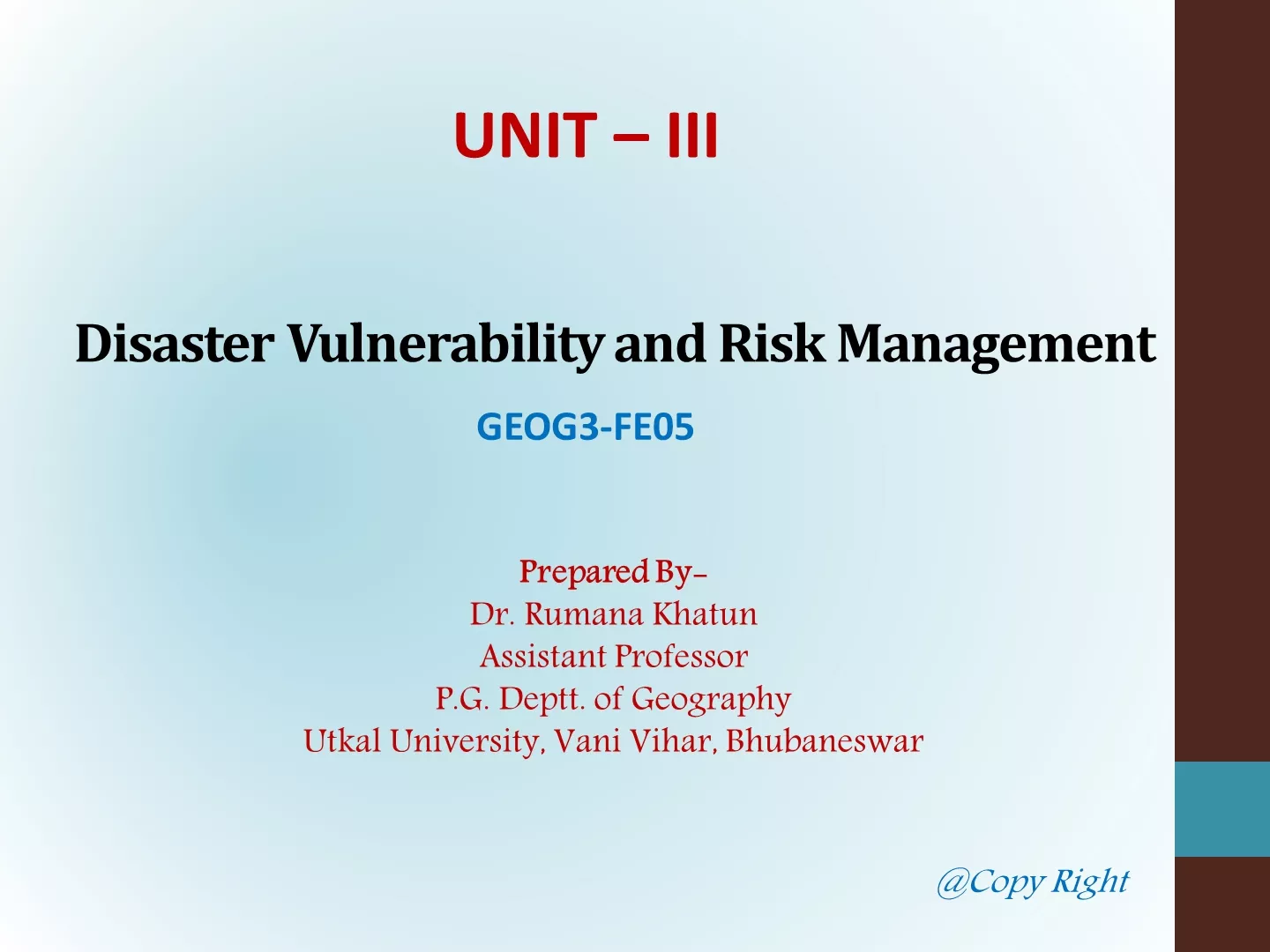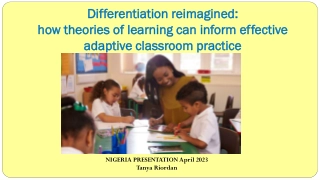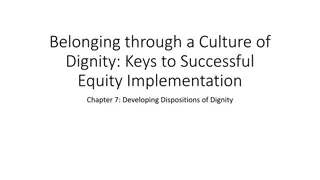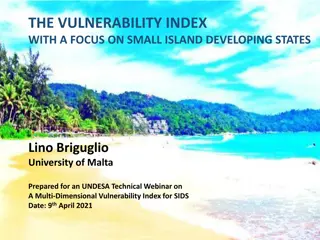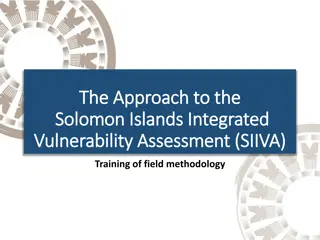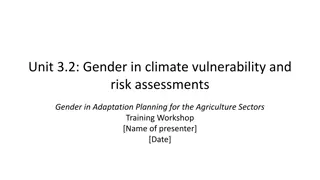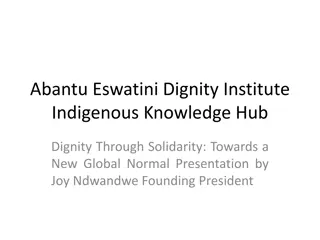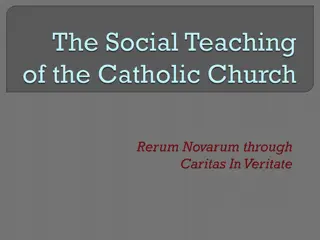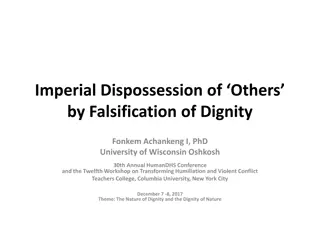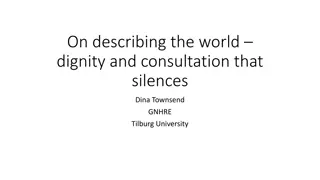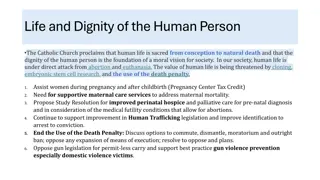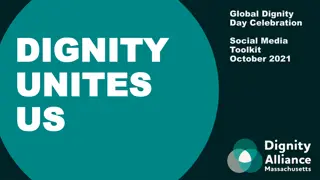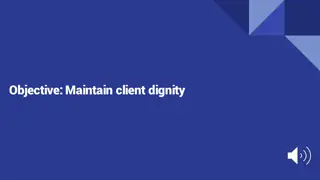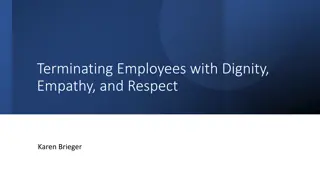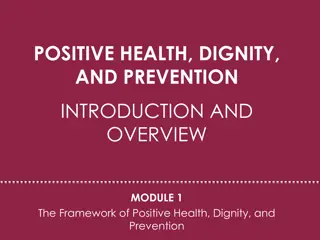Reimagining Vulnerability: Rethinking the Body and Human Dignity
The notion of vulnerability is explored within the framework of the human body and dignity, challenging traditional concepts of autonomy and independence. Scholars like Martha Nussbaum and Fineman provide insights on the universal nature of vulnerability and advocate for a shift towards recognizing and addressing privilege and discrimination in society. This reorientation calls for a more inclusive and empathetic approach in shaping social policies and laws.
Download Presentation

Please find below an Image/Link to download the presentation.
The content on the website is provided AS IS for your information and personal use only. It may not be sold, licensed, or shared on other websites without obtaining consent from the author. Download presentation by click this link. If you encounter any issues during the download, it is possible that the publisher has removed the file from their server.
E N D
Presentation Transcript
The Vulnerable Body Term 2: Lecture 1 Revision, Expansion, Re-orientation
The body in Rome lived/imagined As metaphor, for the body politic the cosmos parts of rhetoric poetry terrain
The body is not (just) an unproblematic fact of nature
Taking the body for granted As something we own? As distinct from the mind/soul? As natural? As gendered? As excluding other bodies? Women, babies and children, the elderly, slaves, animals, foreigners, non- citizens?
The vulnerable subject Martha Nussbaum, Frontiers of Justice (2006) p132: The Kantian split between personhood and animality is deeply problematic. First, it denies a fact that ought to be evident to one who thinks clearly about this issue: namely, the fact that our dignity just is the dignity of a certain sort of animal. It is the animal sort of dignity, and that very sort of dignity could not be possessed by a being who was not mortal and vulnerable, just as the beauty of a cherry tree in bloom could not be possessed by a diamond.
Fineman, The vulnerable subject: anchoring equality in the human condition Yale Journal of Law and Feminism, 20.1 (2008), pp1-2: I argue that vulnerability is and should be understood to be universal and constant, inherent in the human condition. The vulnerability approach I propose is an alternative to traditional equal protection analysis; it is a post-identity inquiry in that it is not focused only on discrimination against defined groups, but concerned with privilege and favour conferred on limited segments of the population by the state and broader society through their institutions .
To richly theorize a concept of vulnerability is to develop a more complex subject around which to build social policy and law; this new complex subject can be used to redefine and expand current ideas about state responsibility toward individuals and institutions. In fact, I argue that the vulnerable subject must replace the autonomous and independent subject asserted in the liberal tradition. Far more representative of actual lived experience and the human condition, the vulnerable subject should be at the centre of our political and theoretical endeavours.
Butler, Precarious Life (2004) 42-3 By insisting on a common corporeal vulnerability, I may seem to be positing a new basis for humanism. That might be true, but I am prone to consider this differently. A vulnerability must be perceived and recognized in order to come into play in an ethical encounter, and there is no guarantee that this will happen. Not only is there always the possibility that a vulnerability will not be recognized and that it will be constituted as the unrecognizable , but when a vulnerability is recognized, that recognition has the power to change the meaning and structure of the vulnerability itself
Butler (2006) p43 ...In this sense, if vulnerability is one precondition for humanization, and humanization takes place differently through variable norms of recognition, then it follows that vulnerability is fundamentally dependent on existing norms of recognition if it is to be attributed to any human subject. true; but it is true, in part, precisely because our utterance enacts the very recognition of vulnerability and so shows the importance of recognition itself for sustaining vulnerability. We perform the recognition by making the claim, and that is surely a very good ethical reason to make the claim. We make the claim, however, precisely because it is not taken for granted, precisely because it is not, in every instance, honored. Vulnerability takes on another meaning at the moment it is recognized, and recognition wields the power to reconstitute vulnerability.
The vulnerable subject as relational subject Butler (2006) p44 When we recognize another, or when we ask for recognition for ourselves, we are not asking for an Other to see us as we are, as we already are, as we have always been, as we were constituted prior to the encounter itself. Instead, in the asking, in the petition, we have already become something new, since we are constituted by virtue of the address, a need and desire for the Other that takes place in language in the broadest sense, one without which we could not be. To ask for recognition, or to offer it, is precisely not to ask for recognition for what one already is. It is to solicit a becoming, to instigate a transformation, to petition the future always in relation to the Other. It is also to stake one's own being, and one's own persistence in one's own being, in the struggle for recognition.
Are vulnerable bodies good to think with ? Vulnerable bodies lie at the fault-lines of Roman identity and imperial power
Looking at power from sideways on/from below The view of the Slave (Phaedrus, Ovid) Freedman (Phaedrus, Horace) The (free/enslaved, rich/poor) woman or effeminate man (Ovid, Horace) The old or decrepit (Horace)
This term we might add From the point of view of the exiled the retired, rejected old man the emotional subject-as-slave the Greek the tortured the sick/depressed the mother the boy made to live as a girl
Revision quiz How do Roman poets imagine poetic metre as corporeal? Give two examples Think of two sites in Latin literature where vulnerability is marked as Greek or Eastern . Translate the following key Latin terms: Libertas flaccus recusatio mollis vulnus imbecillitas mollitia servitium amoris militia amoris
Where can we go in Latin imperial literature to see slaves getting one up on their masters? Where can we go in Latin imperial literature to see aristocratic women mocked by men of a lower social standing? Is vulnerability necessarily a lack of power? What text might show or perform this? Think of an example in the Latin texts we have studied where economic vulnerability and power are not mutually exclusive.
Put the following figures in chronological order (using known or estimated birth date), beginning with the earliest: Ovid, Catullus, Horace, Phaedrus, Propertius, Tiberius, Augustus, Virgil Name the metre of Horace Epodes 1-10 How does iambic verse imagine itself attacking and getting inside bodies, even those of its readers?
Vulnerability and literary form: a (bodily) hierarchy of genres Muscular, hairy epic (e.g. Prop.4.1 on Ennius) Grandiose tragedy Loose, fleshy satire The intimate philosophical epistle Delicate, refined lyric Spiky, hard-to-swallow iambic Castrated, effeminate, weepy elegy Measly, bite-sized epigram The lowly fable (for busy slaves mouths/bodies)
Whats particular about literature? Latin literature is intensely interested in the corporeality of literary form and of literary interactions poetics ---- ontology
Related concepts Metamorphosis/transformation Growth instability
Vulnerability and literary tradition: past and future The father figure (borrow/downgrade his authority, acknowledge/deny your dependency on predecessors) E.g.: Horace Lucilius, Hipponax, Archilochus Ovid Propertius, Tibullus, Virgil Phaedrus - Aesop Acknowledge/deny vulnerability (of text/authorial fame) in the future
The vulnerable subject as vulnerable reader? Is the joke on you? Does literature have the power to change us when we consume it, or take it in ? Are we (ethically, politically) implicated in reading out the representations/perspectives of a text?
